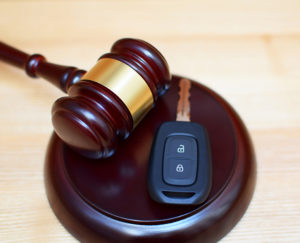 Vehicle repossessions are worrisome and stressful enough, but what happens when the lender files a lawsuit against you after the repossession? Learn about what a deficiency lawsuit is, and what you should do if you’re being sued.
Vehicle repossessions are worrisome and stressful enough, but what happens when the lender files a lawsuit against you after the repossession? Learn about what a deficiency lawsuit is, and what you should do if you’re being sued.
Auto Loan Deficiencies
When auto loan lenders repossess a car, truck, motorcycle, boat, or other vehicle, they sometimes sue the borrower for the deficiency. The vehicle is considered collateral according to the loan agreement, but the sale price after repossession often does not meet the total amount owed on the loan. The deficiency is the amount leftover after the lender has sold or auctioned your vehicle.
For example, let’s say you still owe $20,000 on your auto loan and the lender sells or auctions the vehicle for $15,000. The deficiency amount that you are still required to pay would be $5,000.
The Fair Debt Collection Practices Act
 A qualified consumer rights attorney can evaluate all collection contact for compliance with the Fair Debt Collection Practices Act. If the collector’s tactics have violated the law, you can sue the collector, even though the deficient balance may be owed.
A qualified consumer rights attorney can evaluate all collection contact for compliance with the Fair Debt Collection Practices Act. If the collector’s tactics have violated the law, you can sue the collector, even though the deficient balance may be owed.
Deficiency Lawsuits
 A qualified consumer rights attorney can evaluate all collection contact for compliance with
A qualified consumer rights attorney can evaluate all collection contact for compliance with
After trying to collect, the lender may initiate a lawsuit to recover the deficiency amount. If you have received a summons for a car loan deficiency, do not ignore it.
You still have an obligation to the lender for the deficient balance, even if you don’t have the vehicle. If you disregard a summons to appear in court, the case will proceed without you and a default judgment could be entered against you for the balance of the debt.
Judgments are dangerous. Once the lender gets a deficiency judgment, wages or bank accounts could be garnished, or liens could be placed on personal property.
Seek Legal Help
 Contact Flitter Milz, a consumer rights law firm, to discuss your rights. You may be able to negotiate a settlement or payment plan with the lender.
Contact Flitter Milz, a consumer rights law firm, to discuss your rights. You may be able to negotiate a settlement or payment plan with the lender.
Remember, repossessions and judgments carry negative weight on your credit report. Your credit score could drop, affecting your ability to obtain a new car loan or any new credit. As well it could impact your existing credit by lowering the amount of available credit or increasing the interest rate.






